Have a cough? Here are effective home remedies for dry cough you may try at home today.
When coughing, remove mucus, irritants, and phlegm from the breathing system; it is a wet cough. But when only dry air is expelled, it is a dry cough.(1,2)
Dry cough can be caused by postnasal drip, GERD, or asthma.(3)
Although there are several prescriptions for dry coughs, natural remedies are still outstanding. They are cheap, very effective, and pose no side effects.
Natural remedies also help reduce cough reflex and cold symptoms. They also help solve other medical conditions and boost body immunity against further infections.
So, before booking an appointment with your doctor, why not try these amazing 22 home remedies for unproductive cough?
1. Clean water
Keeping hydrated could bring great relief from dry coughs. The first thing you need to do when you experience a cough is to take some water (at room temperature) and drink.(4)
It can also relieve you of a runny nose and sneezing. Warm water relieves one from symptoms like chills, common cold, and fatigue. This relief is often instant and can remain for longer periods.(5)
Alternatively, some hot beverages are equally good. Such beverages as herbal tea, decaffeinated black tea, and warm fruit juices may also help with dry coughs.
2. Ginger
Ginger is an effective home remedy for coughs for its great anti-inflammatory properties. It also brings relief from pain and nausea.(6)
Ginger contains compounds that dilate the blood vessels, helping free up muscles. Freeing up the muscles makes the lungs and the airways relax, reducing the urge to cough.
Add about 30 grams of fresh ginger to a cup of steaming water. Allow steeping for about five minutes then drink.
You may add a little honey or lemon juice; this improves the healing power and taste. Just a cup of ginger can help relieve you from coughing.
You should, however, avoid taking this remedy in excess. Too much ginger may cause heartburn, stomach upset, or both.
3. Marshmallow root extract

Marshmallow root is well known for treating sore throats and coughs. This herb contains good quantities of mucilage. Mucilage is a thick, gluey substance that coats the throat, bringing instant relief.
Sanmugam (2007) experimented using a herbal mixture of marshmallow, ivy, and thyme. They subjected 30 cough patients to the treatment. In 2 weeks, 90 percent were healed, and the remaining percentage had also improved.
Add dried or ground marshmallows to a cup of steaming water. Allow cooling. The longer you allow it to cool, the more mucilage you get.
4. Using saltwater as a cough remedy
Gargling salt water is another excellent home remedy for coughs. It is, however, recommended for coughs at the onset. It dissolves phlegm and loosens mucus in the throat, cleaning it. These effects lessen the urge to cough.(7)
Add half a teaspoon of table salt into a cup of warm water. Stir until it is completely dissolved. Allow cooling slightly. Gargle in the mouth. Hold the mixture at the back of the throat before spitting.
The cough may be gone in just a few days if you begin saltwater gargling early enough.
This remedy is not encouraged by smaller children. They may swallow the mixture or not gargle properly; swallowing saltwater may worsen the cough.
5. Pineapple
Pineapple is a home remedy for coughs because of its bromelain content. Bromelain is mostly concentrated at the center of the fruit and is useful in treating coughs.
The mucolytic and anti-inflammatory properties of bromelain help it break down mucus and remove them from the body. This reduces the urge to cough.
Although some prefer manufactured pineapple juice, it doesn’t contain sufficient quantities of bromelain. Refined or ready-made bromelain is also discouraged since some people may be allergic to it.
It is better to blend pineapple at home and drink a cup twice daily.
6. Thyme tea
Thyme has great culinary properties. Apart from coughs, it can also relieve you of digestive problems, bronchitis, and itching throat.(8)
Thyme is a well-known home remedy for several illnesses related to the breathing system.
A 2014 study observed that cough syrups manufactured using thyme and ivy leaves were relatively more effective than the rest in relieving symptoms of dry cough.(9)
So why not take it in its natural state? Add two teaspoons of dried thyme to hot water. Steep for fifteen minutes. Strain. Drink.
7. Slippery elm
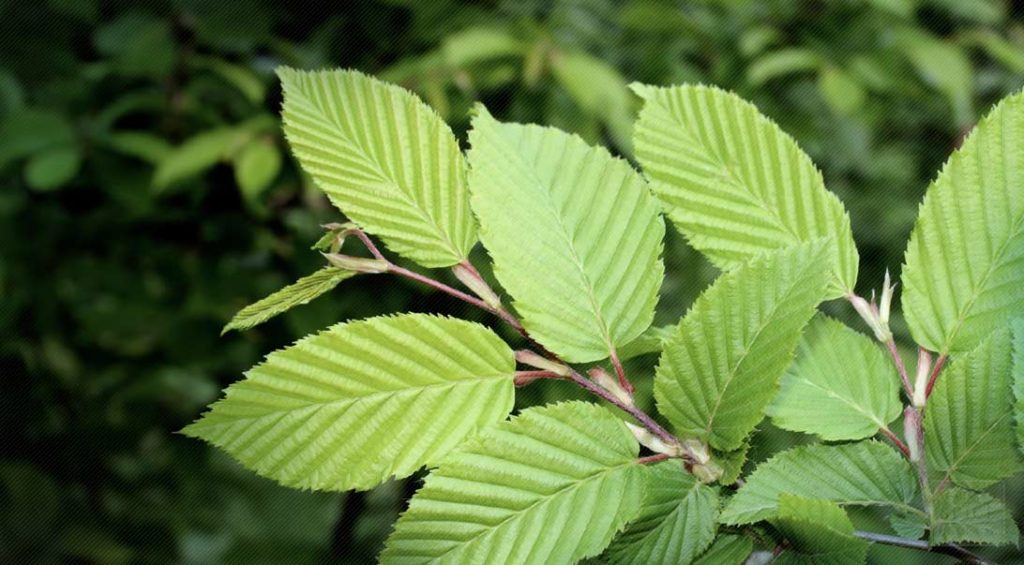
Most Native Americans can attest that the bark of elm is a great cure for dry coughs and digestive problems.(10)
Just like the marshmallow, slippery elm contains great quantities of mucilage. This mucilage brings a soothing, cooling feeling to the throat, reducing the frequency and cough reflex.(11)
Make a slippery elm tea by adding a teaspoon of the dried herb to a cup of hot water. Steep for ten minutes. Drink.
Note that slippery elm may interfere with the efficiency of the other medications. It is therefore advised to use alone or if the other home remedies have not worked out well.
8. Probiotics
Probiotics heal dry cough indirectly. Although they do not offer instant healing, they help balance the bacteria in the gut and boost the immune system.
A well-boosted immune system is necessary for combating some allergens and causes of dry cough.
This is the home remedy for dry cough you need to use, preferably after the symptoms have subsided. It effectively ensures that the coughs do not recur frequently.
Consider adding naturally rich food in probiotics like kimchi, miso soup, natural yogurt, or sauerkraut.
9. Vegetable juice
The antioxidants present in vegetable juice help boost the immunity necessary for fighting the causes of coughs. It can also help one recover from other respiratory illnesses like the flu.(12)
Some vegetables good for preventing coughs include carrots and kales. Their antiviral properties can give a permanent recovery from coughs.
It may be troubling and discomforting to experience a dry cough, but you are well fit to go with a diet rich in vegetables.
What’s even a better alternative is taking vegetable juice like carrot juice.
10. Pumpkin seeds
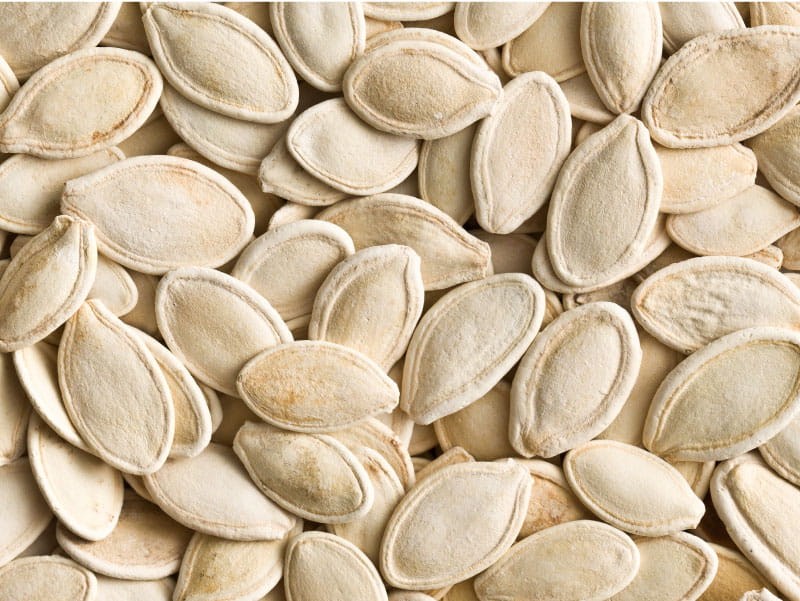
Pumpkin seeds contain zinc which is necessary for boosting the function of white blood cells. White blood cells can effectively help fight pathogens, which may result in coughs like the flu virus.
Crushed pumpkin seeds also contain oils that may lubricate the throat, reducing the urge to cough.
You can chew a handful of pumpkin seeds every day. Alternatively, you can crush them into a paste and eat them. Or better yet, sprinkle them on your salads.
11. Lemon
You may be scared thinking of its acidity content. Well, that’s not the case. Lemon is one of the fastest natural cough remedies that are medically reviewed.
It is highly rich in Vitamin C and is also an antioxidant. Lemon helps in DNA repair and boosts immunity and serotine production. These properties also help soothe cough and relieve other symptoms of dry cough.
It brings relief faster than most other remedies for dry cough. Squeeze the juice out of a fresh lemon into a cup of lukewarm water and drink.
12. Turmeric

In India, turmeric is a very common remedy for a bad cough. It has earned its reputation because of its effectiveness. Turmeric can treat multiple other sicknesses like the common cold.
It contains a compound called curcumin which has great anti-inflammatory properties. Turmeric gets to the gut and calms it down, preventing one from the severity of dry coughs.
Peer-reviewed studies clarify that turmeric helps soothe and calm the airways, bringing great relief from cough. It also boosts immunity and triggers antibody reactions against the causes of a bad cough.
For even faster relief, add a little black pepper to the turmeric.
13. Giloy juice
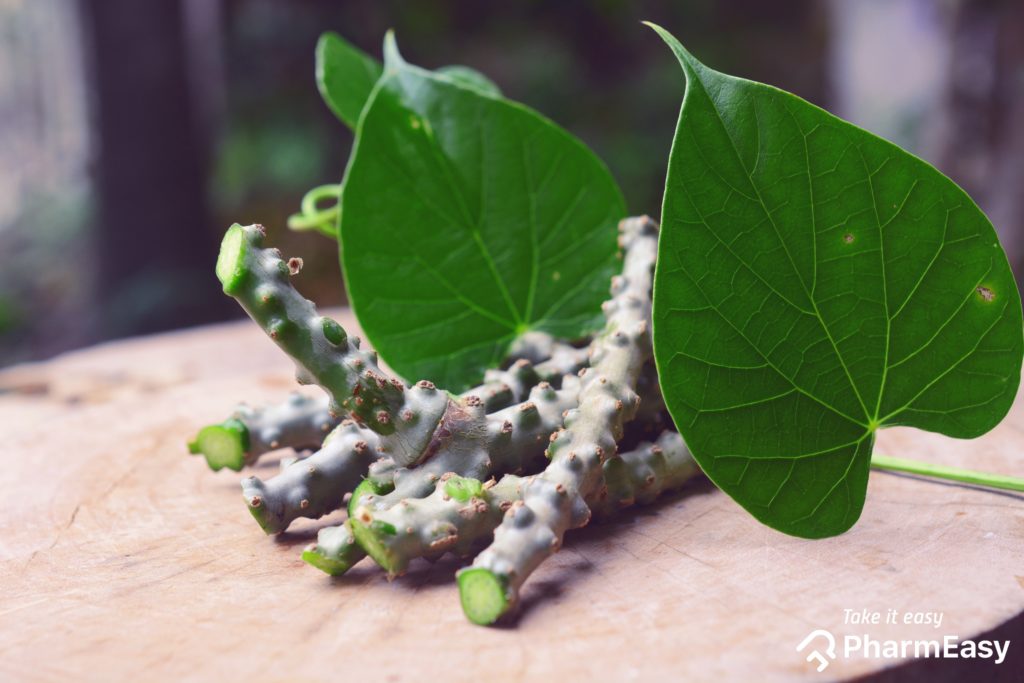
Giloy helps boost the immune system. It is often known for its ability to fight allergic reactions.(13)
Therefore, if your bad cough is an allergic reaction, especially from pollen, dust, or smoke, consider taking some giloy.
Add two tablespoons of giloy to a cup of water. Drink. It is preferable if you drink it in the morning.
14. Cinnamon and Mulethi
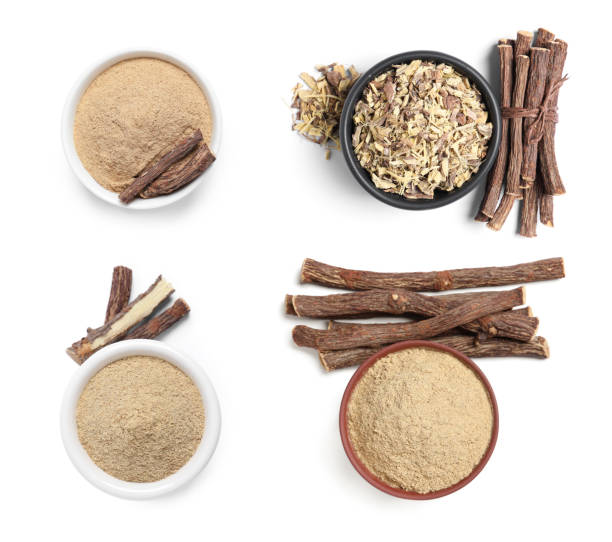
Drinking a solution of cinnamon and mulethi in a cup of water every morning and evening works wonders.
A 2016 medically reviewed study poise that the anti-inflammation properties of this solution are far more effective than most recommendedOTC medications.
It suppresses excess bacteria and microorganisms in the throat and airways, making breathing smoother.
If you have a dry cough and you can get some cinnamon and mulethi, you don’t need to worry about anything.
15. Black pepper
Black pepper is very effective in treating wet cough. For this reason, it can be a great home remedy that several prescribed cough drops.
It helps dissolve mucus, plague, and other allergens causing cough. It also helps clear the throat and airways, reducing the urge to cough. In the initial stages, black pepper is the perfect home remedy for cough.
Mix half a teaspoon of black pepper in a cup of lukewarm water. Wait to cool, then add a little honey and drink. Take once or twice each day for effective relief.
16. Spiced tea
Spiced tea blends the idea of multiple solutions to solve one problem. If each home remedy can work independently, there’s no doubt spiced tea is a far better idea.
Mix half a teaspoon of ginger powder, a little cinnamon, and some cloves in a cup of water and drink. This blend helps remove phlegm from the lungs and reduces congestion and dry runny nose.
Punjani and Kumar (2002) tested and proved spiced tea can solve cough problems effectively. When mixing different home remedies, you should only use compatible mixtures.
Some solutions do not work well together and may complicate the condition.
17. Take a warm bath and steam inhalation
Apart from the general relief feeling it brings, a hot shower can help solve coughing problems. The secret is in the warm steam. You will quickly get over the productive cough if you inhale the steam alongside the baths.
During a hot bath, you inhale steam, which helps dissolve mucus and other allergens in the airways, triggering a cough. It also helps hydrate airways, reducing your urge to expel dry air. You may take long, warm baths to help relieve your coughs.
18. Dust off
For anyone experiencing coughs, dust is the last thing you want to get into your nose. Dust escalates the frequency of your coughs that may worsen the condition of the airways.
The best thing to do is to help reduce things that may trigger the cough further, like dust and pollen.
Consider dusting off your room and compound. If possible, use air purifiers in the house. But if not possible, ensure you wear a face mask while cleaning.
19. Avoid sleeping on your back
Sleeping on the back is one of the most comfortable sleeping positions. It is recommended since it expands the lungs, allowing you to take better quantities of oxygen.
However, this is one of the sacrifices you must make to ease coughing.
Sleeping on the back spreads mucus and allergens through the windpipe as it moves down into the lungs. This greatly increases irritation and the urge to cough.
It is advisable to sleep on the sides in an inclined position such that your head is elevated.
20. Chopped onions
Chop some onions and put them beside your bed. The smell is medicinal. According to several medically reviewed publications, onions contain chemicals that help make most triggers of coughs inactive.
Chopped onions emit chemicals in the smell that help relieve nasal congestion and free the throat. It may also help cure other airways sicknesses like bronchitis.
21. Masala chai tea for sore throat and cough
Recently, chai tea has become a popular drink in the United States. This tea is normally used in India to treat sore throat and coughs.
Among the ingredients of chai are cloves and cardamom. They combine their antioxidant agents to help fight cough. It also contains cinnamon, a well-known anti-inflammatory substance.
If you can’t get the masala tea from the stores, make your own by mixing equal proportions of the ingredients in a cup of lukewarm water.
22. Capsaicin
Chilli peppers contain good quantities of capsaicin, which can greatly reduce perennial coughs.
You don’t have to source it from the stores; you can get good quantities of capsaicin at home.
Add some cayenne chili pepper hot sauce to warm water and drink. You should taste as you add to avoid exceeding your threshold. Alternatively, you can steep whole chili peppers in water and drink them.
For obvious reasons, this home remedy is not recommended for children.
How to get rid of a cough in 5 minutes without cough drops
Hydrate
Liquids are important in overcoming cough quickly. They calm the scratchy irritation on the throat that makes you cough continuously.
It can be water or herbal tea; both can work better alike. If you cough in cold or very hot seasons, consider hydrating yourself with warm water.
Breathing exercise
Although not scientifically proven, breathing exercises can help regulate incidences of cough.
It’s argued among scientists that the possibility of deep breathing clearing the mucus in the throat and trachea can help reduce coughs.
Some medical practitioners agree that breathing exercises can manage several respiratory conditions, like obstructive pulmonary disease. Breathing cold air can also help regulate cough, which comes with irritation and tickling in the throat.
Gargling salt water
Salt water gargle is effective in curing wet cough. However, it can also help in cough when the irritation on the back of your through is unbearable. It also helps kill bacteria in the mouth and the throat, which may cause further coughs.
Homemade cough suppressants that can replace cough medicines
Several over-the-counter cough medicines for acute cough may quickly relieve cough. But as always, these drugs have side effects on your general health.
Here is a natural homemade cough syrup that is vital for younger children. Several upper respiratory infection specialists recommend this syrup.
Method and preparation
You need eucalyptus oil and natural honey. Then heat the honey to a warm temperature, add a few drops of the essential oil, and take it.
For adults, you may use two tablespoons twice a day, and for toddlers, one teaspoon thrice a day.
This homemade dry cough remedy can soothe an irritated throat, ease throat pain, and cure persistent cough.
This cough syrup has several benefits to your respiratory tract than other cough suppressants. You can incorporate other essential oils depending on availability.
How do I stop dry cough instantly?
Add Honey to a hot drink
One of the best ways to relieve dry coughs at home is by mixing a few teaspoons of honey in a cup of lukewarm water. As simple as that! Honey has antibacterial properties that can cure most coughs not caused by upper respiratory tract infections.
Van Schoor (2016) compared the effectiveness of honey tea against dextromethorphan, a popular cough medicine. The study found that honey tea was more effective than dextromethorphan in treating coughs. Honey provides a quicker and longer-lasting relief.
To use, add two tablespoons of natural honey to warm water. Mix. Drink. Alternatively, you can use herbal tea instead of water alone. The results are better. Because of its anti-inflammatory effects, honey will help reduce throat inflammation.
You must ensure you do not give honey to children below one year of age.
Avoid irritants
Coughing is not a disease but a sign of respiratory disease. However, when it occurs, it indicates that foreign substances are invading the respiratory system. Some individuals are very allergic to chemical irritants.
If you are one, avoiding such irritants will help you stop your cough instantly if an allergic reaction causes it. Use a humidifier to make sure you breathe moist air.
How to stop nighttime coughing
Although prominent in kids, nocturnal cough affects some adults. Find here a nighttime cough remedy without using over-the-counter drugs to treat cough.
Raising your head
Sleeping with your head slightly raised above the body will reduce the incidence of mucus accumulating in your throat, which causes night coughs.
When doing this, be careful not to over-raise the body because you might get neck pains.
Manage GERD
Gastroesophageal reflux disease is when the stomach content flows back to the gullet. These acids irritate the throat, causing night coughs.
You can manage acid reflux by not going to bed three hours after sapper. You can reduce the snacking rate between meals and raise your head during sleep.
Decrease allergens
Avoid them if you are sensitive to pollen, cold, dust, mold, pet dander, etc. Allergies like hay fever may cause coughs.
Keep pets out of your bedroom, ensure sufficient ventilation, and the room is not stuffy and free from dust and pollen.
Quit smoking
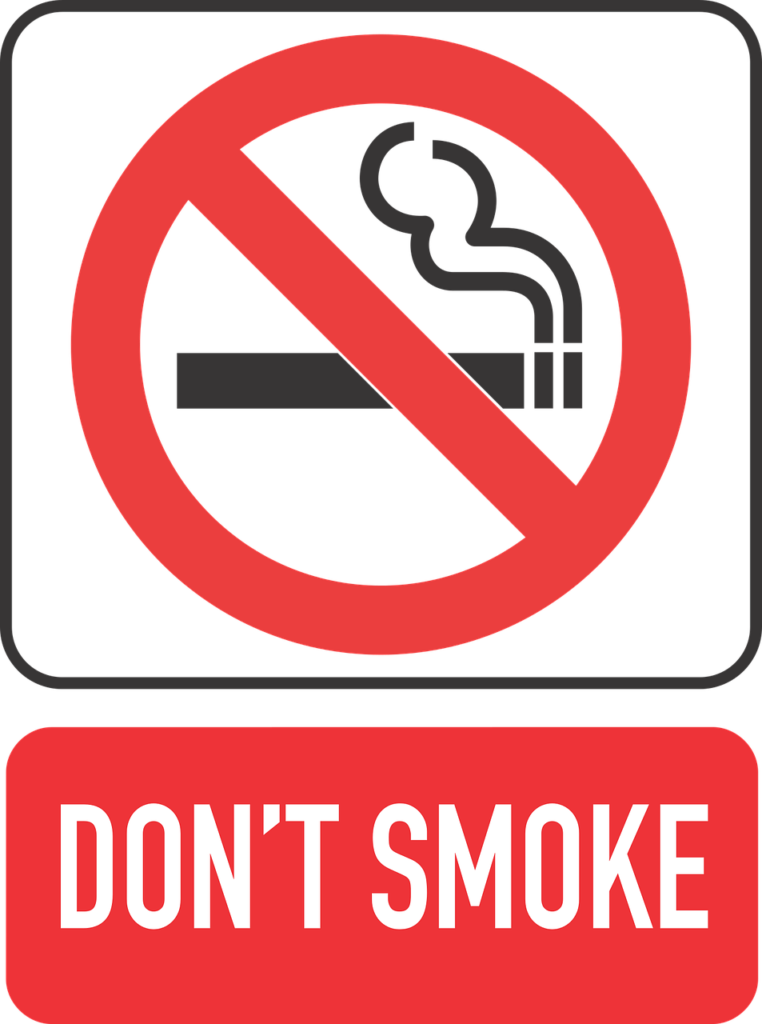
Smokers can never escape coughing. The body’s response to clear the airways and lungs will make you cough continuously.
Although this starts as a dry cough, later, after some tie, it produces phlegm. The tobacco and smoke chemicals irritate the throat and your airways.
Avoid smocking for its adverse effects on your health other than coughing alone. Continuous throat irritation from the chemicals in cigarettes makes the coughing symptoms worse.
Take away
Some causes of coughs are asthma, postnatal drip, acid reflux, and allergies. A dry cough often comes after wet coughs, and they may linger for weeks and even more. If left unchecked, this condition might get worse.
Coughing, both dry and wet, increases at night. When you lie, mucus drips from the nose into the windpipe, triggering the urge to cough. It is advisable to support your head to a higher position than the rest of your body.
Now that you have medically reviewed natural remedies for dry cough you can use at home, why not try them?
See your doctor when you experience shortness of breath, chest pain, and health conditions like high blood pressure.


Pingback: 7 Home Remedies for Cold flu | GILEAD THERAPY
Pingback: 13 Home remedies for indigestion-a review | GILEAD THERAPY
Pingback: How do you treat allergies without medicine? | GILEAD THERAPY